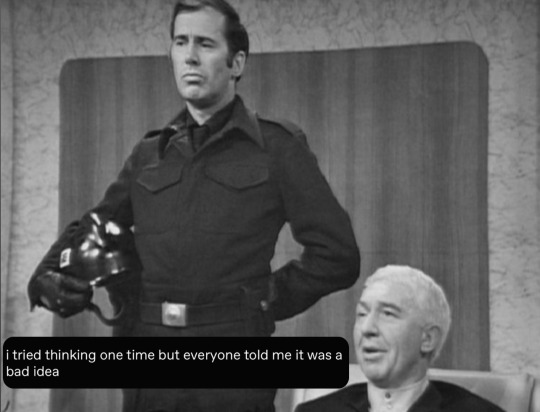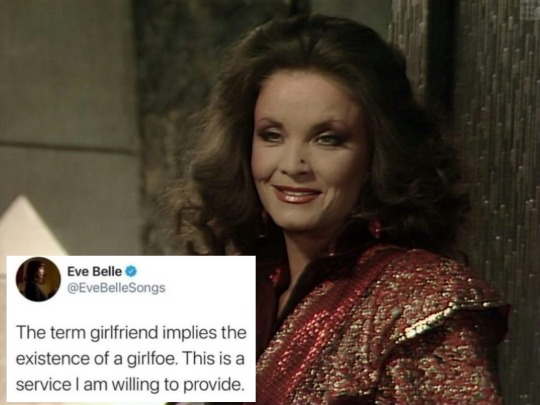#tom nicholas
Text
Tom Nicholas just posted a video that summarizes like half a semester of business school and honestly teaches it better than a lot of my professors, while also ensuring the viewer is aware of the moral and ethical failings of free trade in the name of comparative advantage and global efficiency.
youtube
(Yes, for the unaware: I have a bachelor's degree in international business. I am also one of those people who graduated with a distinct distaste for much of the business world, related directly to the 'taking advantage of cheap labor and bullying less powerful entities is good, actually' model of economic theory that a lot of my classes pushed.)
#tom nicholas#education#economics#global economics#geopolitics#china#wto#united states#phoenix politics#youtube#videos#though I actually watched this on Nebula lol#comparative advantage#free trade#Youtube
362 notes
·
View notes
Text
YouTuber Tom Nicholas misrepresented Steven Pinker's statements on academic writing
Tom Nicholas’s YouTube video “Why is Academic Writing so Boring?” is wildly wrong and misleading in how it portrays Steven Pinker. Nicholas falsely accuses Pinker of making arguments that he very clearly does not make, and ignores almost everything Pinker actually says.
Several years ago, I read Pinker’s book The Sense of Style—a pretty great book about how to improve writing, especially academic writing. When I saw Nicholas’s video, which only focuses on Pinker’s much shorter essay “Why Academics Stink at Writing,” I noticed the view he attributes to Pinker bears little resemblance to the view Pinker develops in the book. But I wondered if maybe Pinker’s essay was indeed a lot dumber than the book, since authors often do a very bad job of compressing their ideas into short formats. So I read the essay—and found Nicholas’s portrayal was not a remotely reasonable interpretation.
For one thing, Nicholas speaks as if Pinker is opposed to academic jargon, which is not true. Pinker thinks some jargon is essential and useful, and that some jargon is gratuitous. Some version of this position is blatantly correct. Nicholas spends a LOT of his video defending the very idea of academic jargon—a view Pinker already agrees with! Nicholas and Pinker may well turn out to disagree on the specifics of what kinds of jargon are justified, but Nicholas can’t explore this idea since he’s misrepresenting Pinker as being opposed to all jargon.
In fact, Pinker mostly focuses on issues other than jargon—and Nicholas completely ignores all of this, despite its obvious relevance to the video topic.
On two occasions in the video, Nicholas presents a quote from Pinker (from page 1) out of context—making it sound as if Pinker is saying academics in the “softer sciences” generally write badly on purpose, “to hide the fact that they have nothing to say.” But the truth is, Pinker doesn’t express this theory himself. He says it is the most popular theory among non-academics! Then in the very next paragraph, he says: “Though no doubt the bamboozlement theory applies to some academics some of the time, in my experience it does not ring true. I know many scholars who have nothing to hide and no need to impress. They do groundbreaking work on important subjects, reason well about clear ideas, and are honest, down-to-earth people. Still, their writing stinks.” This is never mentioned in the video.
Nicholas very briefly mentions that Pinker gives several reasons why most academic writing is bad, but he gives the impression that the bamboozlement theory is an argument Pinker himself is putting forward. Nicholas completely omits the fact that Pinker says the theory “does not ring true.” And Nicholas completely leaves out any mention of the reasons that Pinker spends the entire rest of the essay discussing. Pinker rejects the notion that most bad academic writing is intentionally obscure. Instead, he gives a nuanced and charitable analysis appealing to several factors, many of them fairly innocent. A large portion of his analysis is the “curse of knowledge”—roughly, the tendency for an expert on X to fail to grasp what it’s like to not know much about X, and thus to fail to write in a manner that is comprehensible to someone who doesn’t already know the same stuff.
There is a popular notion that academic writing is generally bad on purpose, and that it is generally bad due to jargon. Some parts of Nicholas’s video are a half-decent rebuttal to this view. But he depicts Steven Pinker as the avatar of this view—a view Pinker explicitly rejects.
Nicholas occasionally mentions that he agrees a lot of academic writing is bad, but he never clarifies how. Meanwhile, Pinker has actually written a lot on diagnosing the problems and giving advice on how to improve it.
Nicholas speaks as if Pinker singles out the “soft” sciences (twice misrepresenting Pinker’s quote, as I mentioned). Pinker does later claim that the humanities have some distinctive writing problems (which may or may not be true, and may be worth exploring at length-- but Nicholas doesn’t even cite this part), but in the essay under discussion he simply does not dwell long on this. Pinker criticizes the writing style of “hard” science research studies numerous times. He also says some writing problems are especially severe in linguistics, his own field.
Finally, Nicholas essentially accuses Pinker of opposing jargon out of a desire to defend status quo capitalism and make it harder to engage in high-level critique of status quo capitalism. Pinker is a capitalist, and some of his political views are probably bad. The only Pinker book I’ve read is The Sense of Style, which barely discusses politics (except in the section where Pinker defends the singular ‘they’), so I can’t comment on that. All I know is that Nicholas blatantly and severely misrepresents the Pinker essay in the video, and none of Pinker’s political positions will change this fact or make it okay.
17 notes
·
View notes
Text





Omg why is he so hot in this movie fr! Like I wanna just kiss and cuddle him 24/7! I wonder what it would be like to date this guy… 🔥🖤✨
7 notes
·
View notes
Text
youtube
most of this is defo stuff i was Already Aware Of but jeez seeing it laid out like this is. a lot.
turns out having a capitalist system that relies on addiction and trapping consumers into a single brand with patented refills can suck a lot actually
#buzzy#lets see dudes name is#tom nicholas#vaping#vape pens#disposable vapes#and a buncha other shit like#insulin#social media#razors#adobe#its a lot#yall im not even saying this in a 'dont do drugs!!!' way like. dont start vaping#if youre doing it as an alt to smoking cigs then Okay Fine#but dont just. pick up a vape pen filled w nicotine bc 'well its not as bad as smoking'#no its not but also dont get yourself fuckin addicted to a thing purpsoefully made to be addicting to line CEOs pockets#like. just. dont??#i know i got stuff im addicted to in varying degrees like social media like everyone else but im not gonna just#pick up the thing where a big selling point is 'contains addictive chemical that will make u dependent on Company'#also fuck the entire concept of disposable vapes christ#if u are not currently addicted to nicotine then you should try to avoid becoming Addicted To Nicotine#as much as is feasible at least#Youtube
4 notes
·
View notes
Text
youtube
Vape-o-nomics: Why Everything is Addictive Now
#tom nicholas#limbic capitalism#a bag of neat tricks#chemical addiction#behavioral addiction#aggressive patent protection#lobbying#evergreening#the razor and blade model#free trials#''get them young!''#subscription services#freedom from choice is what you want#I can't help but notice that even the sponsor for this video is a subscription to an app...#crack selling anthem
3 notes
·
View notes
Text
youtube
i'm only a quarter of the way into tom nicholas's latest video but it's so interesting and honestly really relevant to my life and changes i'd like to make. it's worth the watch regardless, but to anyone that finds themselves refreshing their dash more than once or twice a day, this is an especially good watch.
#i am now both the little sibling that shares their shows AND a facebook uncle that shares internet videos#love this for me#but genuinely this is a really good vid from tom#tom nicholas#Youtube
3 notes
·
View notes
Text
Griftonomics: Why Scams are Everywhere Now
youtube
2 notes
·
View notes
Video
youtube
Great video from Tom Nicholas about media framing and how it allows bigots and bad actors to make their views seem more respectable.
#transphobia#politics#media#media criticism#journalism#mainstream media#uk politics#us politics#bigotry#tom nicholas#transgender#important#not mine#youtube#my own posts
8 notes
·
View notes
Text
youtube
#jordan peterson#george orwell#tom nicholas#socialism#communism#stalinism#history#authors#propaganda#media#literature#the west
0 notes
Text
Grifts, Spiritual Grifts, and Widespread BS
Recently I discovered the delightful videocaster Tom Nicholas. A charming man who covers economics, politics, and culture, he has a witty but laid-back style that helps him cover some pretty serious subjects. My introduction to his work was a YouTube episode on why everything is so grifty these days, which I recommend seeing. Well, after you finish reading this.
It’s hard to sum up, but the short form is work and the economy aren’t so hot, business gurus sold advice on how to make money (while their business was guruhood), and eventually you end up with grifts everywhere. I’m not doing it justice, but, you get the idea – looking to have grifts is sort of normalized now.
While rewatching this episode because I’m some kind of masochist, I began wondering what this meant for the spiritual grifts that I often analyze. Which is where this column comes from, so here’s my thoughts.
Spiritual grifts have always been with humanity as long as there have been humans. It doesn’t take much historical reading to find such things, from failed cults to faked miracles. But there’s something about today’s spiritual grifts where they seem to be varied, ominpresent, and a lot of people are in on them.
Which seems sort of weird. Are there this many chosen ones, like can someone choose among the chosen ones to narrow it down? Why can’t all the messages from the Space Brothers, you know, line up? How come the Ascended Masters only now care about vaccination? I mean, how did we get here?
When I stepped back thanks to Mr. Nicholas, the answer seemed depressingly obvious.
First, grifts always take advantage of existing technology. The printing press changed every country that created it or adopted it – and also meant people could more easily print and spread bullshit. History is replete with opportunity pamphleteers and scam artists and people who lied fast and wrote just as fast on spiritual “issues.” The internet just makes it faster than we were used to a few decades ago – and easier to start a spiritual grift.
Secondly, many of us exist in a culture that contains what I might call “Capitalist Idolatry.” We are told to make money all the time, to turn everything to a profit, to look for the next thing. We’ve had years of business gurus pitching side hustles and passive income. We’ve internalized this, and for many people this seems to be instinctual.
Third, the economy hasn’t gone great for a lot of people. How many layoffs, restructurings, firings, our recessions have you been through? How many people lost their economic progress, or never even got a chance to start any progress? People have been let down by the economy, and they’re looking to make money, and that culture of hustle is there waiting to tell us we can do it – and beat the system!
Fourth, American culture has normalized the spiritual grift. We have the so-called mainstream Christian grift, a historical lineage of tent revivalists, pass-the-plate evangelists, megachurches, and of course the televangelists and their empires. If people aren’t interested in that – or are rebelling against it – you can provide “alternative” spirituality and get your own grift going by doing something different while keeping the same old moneymaking routines.
Fifth, spiritual grift doesn’t require you to make anything unusual. Sure you can sell crystals and whatever, but it’s really easy to sell content which you can just make up and spew into the format of your choice. If you do want to sell merch you can get things manufactured or slap your brand name on some pre-made herbal medication or whatever. But for the most part, spiritual grift is no different than the various life coach and business guru scams.
Toss all that together and of course we’re awash in Spiritual grifts. They’be been around for awhile, we exist in a grifty culture, and the internet turned it up to eleven. When someone is flooded with TikTok, YouTube, and Podcast gurus, they might get ideas. They might even have some authentic spiritual insights, but that’s a seed for something neither spiritual or insightful.
What we face today in the world of spiritual grift is something more widespread and faster-moving than grifts of say a century ago. But nothing is actually unusual – we’ve all seen it before, throughout history and throughout our lives.
-Xenofact
0 notes
Text




#my other on screen wife#dead#i love them#succession#tom x greg#greg x tom#Nicholas Braun#Matthew Macfadyen#my stream crapped out on me so this is the last thing it let me see haha#worth it#emmys#the emmys#emmys 2024#gif#gifs#gifset#love
2K notes
·
View notes
Text








classic who textposts as weird shit i’ve said: part ???
bonus:

#doctor who#classic who#classic doctor who#zoe heriot#second doctor#jamie mccrimmon#fraizer hines#wendy padbury#patrick troughton#third doctor#brigadier#brigadier lethbridge stewart#jo grant#the brig#nicholas courtney#katy manning#jon pertwee#fourth doctor#tom baker#sarah jane smith#elizabeth sladen#k9#crispy master#tumblr text posts#text posts#textpost#my text#dw text posts
2K notes
·
View notes
Text


they're all method acting
6K notes
·
View notes
Text

YALL DON’T UNDERSTAND HOW MUCH I WANNA KISS THIS MAN!!! LOOK AT HIM! GAH DAMN HE SO FUCKING HOT!!! 🔥
2 notes
·
View notes
Text
















I lied. I made more.
And I won't stop with the Adric ones.
#second doctor#patrick troughton#third doctor#jon pertwee#fourth doctor#tom baker#fifth doctor#peter davison#sixth doctor#colin baker#seventh doctor#sylvester mccoy#the rani#kate o'mara#sarah jane smith#elisabeth sladen#john benton#john levene#adric of alzarius#matthew waterhouse#tegan jovanka#janet fielding#brigadier alistair gordon lethbridge stewart#nicholas courtney#doctor who#classic who#classic doctor who#ace mcshane#sophie aldred
429 notes
·
View notes
Text
youtube
The Myth of a Free Press: Media Bias Explained
2 notes
·
View notes